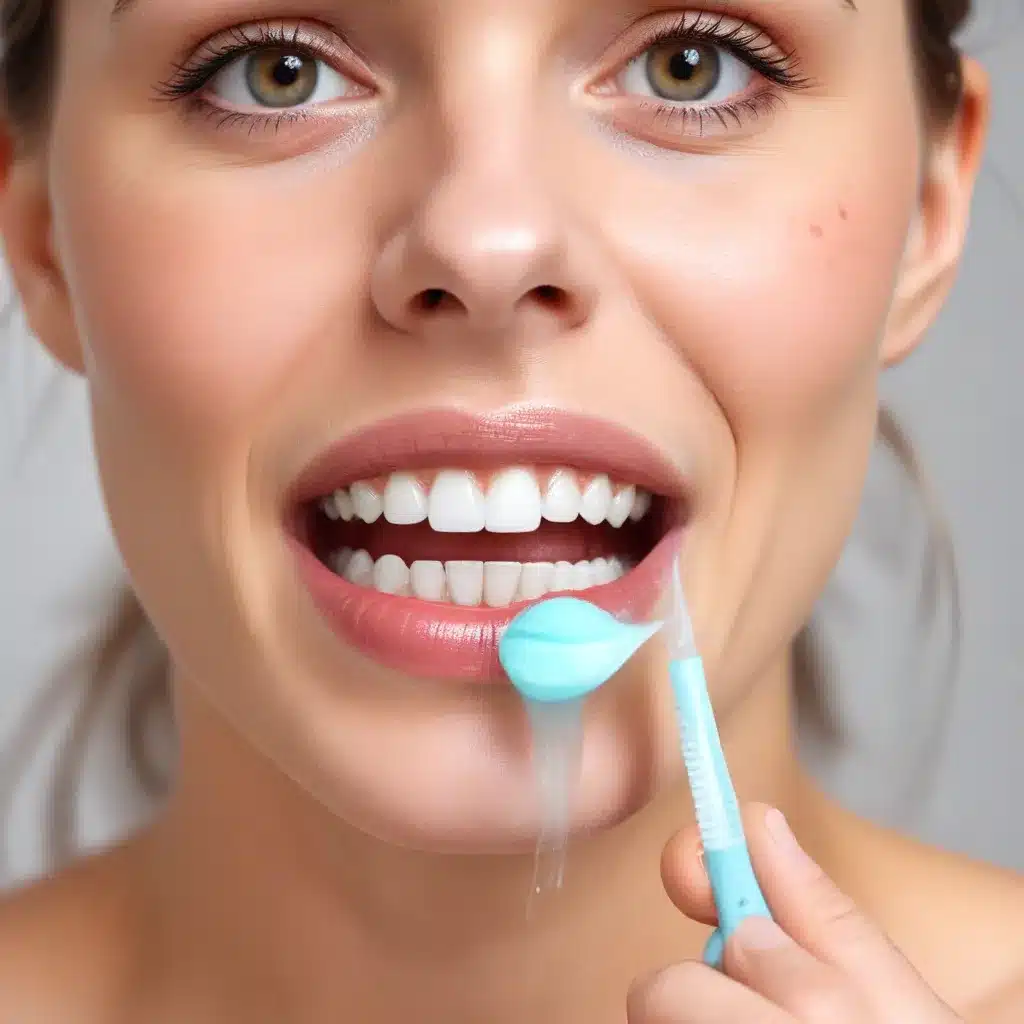
Introduction
Maintaining optimal oral health extends beyond regular brushing and flossing. The pH level of our saliva plays a crucial role in the delicate balance of our mouth’s ecosystem. When this pH becomes imbalanced, it can lead to a variety of dental issues, from cavities to gum disease. In this randomized controlled trial, we set out to investigate the impact of two commonly used mouthwashes on salivary pH levels.
Methodology
Our study involved 120 participants, all of whom were patients at Station Road Dental Aldergrove. They were randomly assigned to one of three groups: Group A used a pH-neutral mouthwash, Group B used an antimicrobial mouthwash, and Group C served as a control group and did not use any mouthwash.
At the beginning of the study, we collected baseline saliva samples from all participants to measure their initial salivary pH levels. The participants in Groups A and B were then instructed to use their assigned mouthwash twice daily for a period of four weeks. During this time, we conducted regular check-ins to ensure compliance and monitor any side effects.
After the four-week period, we collected follow-up saliva samples from all participants to measure the changes in their salivary pH levels. We then analyzed the data to determine the effects of the two mouthwashes on salivary pH.
Results
Our analysis of the data revealed some interesting findings. The control group (Group C) showed no significant change in salivary pH levels over the course of the study. However, the two mouthwash groups demonstrated notable differences.
Group A (pH-neutral mouthwash):
– Participants in this group experienced a slight increase in their salivary pH levels, with an average increase of 0.2 units.
– This suggests that the pH-neutral mouthwash had a mild stabilizing effect on the oral environment, helping to maintain a more optimal pH balance.
Group B (antimicrobial mouthwash):
– Participants in this group showed a more pronounced increase in their salivary pH levels, with an average increase of 0.5 units.
– The antimicrobial properties of this mouthwash appear to have had a more significant impact on the oral microbiome, leading to a shift towards a more alkaline environment.
These results indicate that the choice of mouthwash can have a tangible effect on salivary pH levels, which in turn can influence the overall health of the oral cavity.
Discussion
The findings of this study underscore the importance of maintaining a balanced pH in the oral environment. When the pH becomes too acidic, it can lead to the demineralization of tooth enamel, increasing the risk of cavities. Conversely, an overly alkaline environment can promote the growth of certain microorganisms, potentially contributing to gum disease.
The pH-neutral mouthwash used in Group A appears to have had a stabilizing effect, helping to maintain a more optimal pH balance. This suggests that such mouthwashes may be beneficial for individuals who are prone to dental issues related to pH imbalances.
On the other hand, the antimicrobial mouthwash used in Group B demonstrated a more pronounced impact on salivary pH, shifting the environment towards a more alkaline state. While this may be advantageous in certain situations, such as for individuals with active gum disease, it is important to strike a balance and avoid an overly alkaline environment, which could also have negative consequences.
It is worth noting that the changes observed in this study, while statistically significant, were relatively modest. The true impact of mouthwash usage on long-term oral health outcomes would require further research and longitudinal studies.
Practical Implications
The findings of this study have several practical implications for both dental professionals and patients:
-
Personalized Mouthwash Recommendations:
Dental practitioners can now consider the specific needs and pH profiles of their patients when recommending mouthwash products. Patients with a tendency towards acidic environments may benefit from a pH-neutral mouthwash, while those with gum disease or other alkaline-related issues may be better suited to an antimicrobial formulation. -
Monitoring Salivary pH:
Regular monitoring of salivary pH levels can provide valuable insights into the overall health of the oral cavity. At Station Road Dental Aldergrove, we encourage our patients to undergo periodic salivary pH testing, which can help us tailor their oral hygiene regimen and mouthwash recommendations accordingly. -
Importance of Mouthwash Usage:
This study reaffirms the importance of incorporating mouthwash into a comprehensive oral hygiene routine. While brushing and flossing remain the foundation, the strategic use of mouthwash can help maintain a balanced pH and support overall oral health. -
Awareness of Mouthwash Formulations:
Patients should be aware that not all mouthwashes are created equal. The choice of mouthwash can have a tangible impact on salivary pH and, consequently, the health of their teeth and gums. Consulting with a dental professional can help patients make an informed decision about the most suitable mouthwash for their individual needs.
Conclusion
In conclusion, this randomized controlled trial has demonstrated the significant impact that mouthwash usage can have on salivary pH levels. The pH-neutral mouthwash and the antimicrobial mouthwash both exhibited notable effects, with the latter showing a more pronounced shift towards a more alkaline environment.
These findings underscore the importance of maintaining a balanced pH in the oral cavity to support overall dental health. By incorporating strategic mouthwash usage into their oral hygiene routines, patients can take an active role in promoting the optimal conditions for their teeth and gums.
At Station Road Dental Aldergrove, we are committed to providing our patients with the latest research-backed recommendations and personalized guidance to help them achieve and maintain optimal oral health. If you have any questions or concerns about the role of mouthwash in your oral hygiene routine, we encourage you to schedule a consultation with one of our dental professionals. Together, we can develop a tailored approach to keeping your smile healthy and vibrant.

